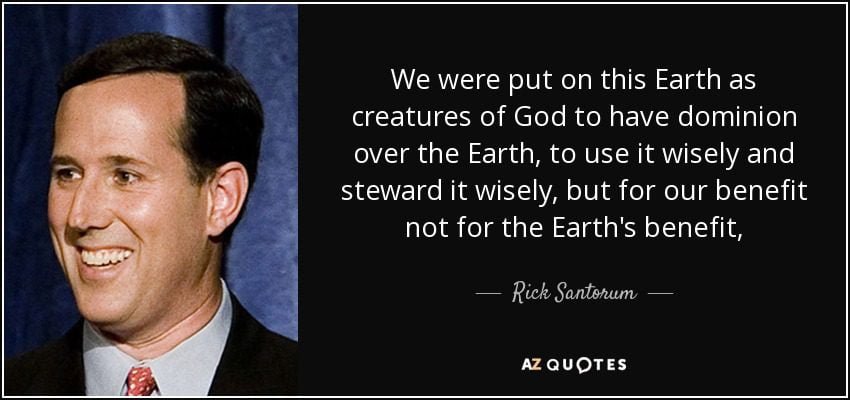
Evangelical preachers, regardless of their theological flavor, are liars. I have known a number of Evangelical pastors, evangelists, missionaries, and professors in my lifetime. Without exception, these men of God, at one time or another, lied to their congregants or ministerial colleagues. Now, this doesn’t mean that they set out to deliberately obfuscate or deceive — though some did — but the fact remains these so-called men of God played loose with the truth. I plan to deliberately paint with a broad brush in this post, so if you just so happen to be the Sgt. Joe Friday of Evangelicalism, please don’t get upset.
One way preachers lie is by withholding truth. On Sundays, pastors stand in pulpits and preach their sermons, giving congregants a version of truth, but not the truth, the whole truth, and nothing but the truth. Evangelical preachers enter their pulpits with an agenda, an objective. Their agendas affect how they interpret the Bible and what they say in their sermons. The Bible, then, becomes a means to an end, be it saving the lost, calling congregants to repentance, raising money, or advancing pet projects.
This means that Bible verses are spun in ways to gain desired objectives. Instead of letting the Bible speak for itself, the text is manipulated and massaged in the hope that congregants will buy what their pastors are selling. And make no mistake about it, there’s little difference between pitchman Billy May and the preacher down at First Baptist Church in Podunk City. Preachers are salesmen with products to sell, and the goal of a well-crafted sermon is to get hearers to sign on the dotted line. (Please see Selling Jesus.)
Another way preachers lie is by giving the appearance that their sermons are God’s opinion on a matter. God speaks through God’s man as he preaches God’s infallible Word, or so the thinking goes, anyway. However, every preacher’s thinking is colored by his past religious experiences, education, and culture. Pastors regurgitate what they heard their pastors preach while growing up, what their professors taught them in college, and what they read in theological books. Every Evangelical preacher walks in a certain rut, interpreting the Biblical text as do others in that rut. Birds of a feather flock together, the old saying goes. Christianity consists of thousands and thousands of sects, each with its own peculiar spin on the Bible. Countless internecine wars are fought over minute points of doctrine and practice. Only within the Christian bubble do these things matter, but boy, oh boy do they matter! Evangelicals, in particular, are known for their bickering over theology and how followers of Jesus should live. This fact is a sure sign, at least to me, that Christianity is not what Evangelicals say it is. If there is one God, one Jesus, and one Holy Spirit who lives inside every believer, it stands to reason that Christians should all have the same beliefs. That they don’t suggests that there are cultural, sociological, and geographical issues at work. How else can we explain the theological differences between sects, churches, and individual Christians? Why, Christians can’t even agree on the basics: salvation, baptism, and communion/Eucharist/Lord’s supper.
Most preachers know about the diversity of theology and belief among Christians, yet they rarely let it be known to their congregations except to call other beliefs false or heretical. It is clear, at least to me, that the Bible teaches a number of “plans of salvation”; that both the Arminians and Calvinists are right; that both salvation by grace and salvation by works are true. Why don’t preachers tell the truth about these things? Is it not a lie to omit them — the sin of omission? If Christianity is all that Evangelicals say it is and Jesus is all-powerful, surely Christians can handle being given the truth about the Biblical text, church history, and the varied theological beliefs and practices found within Christianity. If pastors want to be truth-tellers, they must be willing to tell congregants everything, including the stuff that doesn’t fit a particular theological box. Imagine how much differently Evangelicals might act if they were required to study world religions and read books by authors such as Dr. Bart Ehrman. That will never happen, of course, because it would result in most preachers losing their jobs due to attendance decline and lost income. Truth is always the enemy of faith.
Atheists such as myself know the value of wide exposure to contrary beliefs. After all, our deconversions often followed a path of intense and painful intellectual inquiry. In my case, it took years for me to slide to the bottom of the slippery slope of unbelief. Along the way, I made numerous stops, hoping that I would find a way to hang on to my belief in God. I found none of these resting places intellectually satisfying. I wanted them to be, but my commitment to truth wouldn’t let me. In the years since, I have encouraged doubters to follow their paths wherever they lead. Meet truth in the middle of the road. Don’t back up or try to go around. Do business with truth before moving forward. This is, of course, hard to do, because it requires abandoning previously held beliefs when new evidence is presented. It requires admitting you were wrong. And therein is the rub for many Evangelical preachers: they have spent their lifetimes being “right” and preaching their rightness to their church congregations. To admit they were wrong would cause their metaphorical houses to crumble. So instead of telling the truth, Evangelical preachers lie. They lie because they have careers, families, congregations, and denominations to protect.
And finally, some Evangelical preachers lie in their sermons, stories, and testimonies because they never let the truth get in way of telling a good story. I have heard countless testimonies and sermon illustrations, and the vast majority of them were embellished at some point or the other. Not that this is a great evil. We all do it, Christian or not. My problem with Evangelical preachers doing it is that they present themselves as pillars of moral virtue and arbiters of truth. When you ride your horse on the moral high road, you should expect attempts will be made to push you down the ravine to where the unwashed, uncircumcised Philistines of the world live.
Preachers know that there’s nothing like a good story to seal the deal with people listening to their sermons. Believing that “the end justifies the means,” preachers shape and mold their stories and testimonies in ways that best lead to desired outcomes. For those of you who were raised in Evangelical churches, think about some of the salvation testimonies you heard on Sundays. Fantastical stories, right? Almost unbelievable! And in fact, they aren’t believable. All of us love a good story, but when trying to convince people that a particular sect/church/belief is true, surely it behooves storytellers to tell the truth. Instead, preachers color their stories in ways so people will be drawn to them. Every story and every sermon is meant to bring people to a place of decision. A preacher has wasted his time if his sermon hasn’t elicited some sort of emotional response. There’s nothing necessarily wrong with this. Politicians, sportscasters, and preachers — to name a few — all use the power of stories to draw people in and get them to make a decision — be it to get saved, vote, or cheer your team on. Any preacher worth his salt knows how to manipulate people through his use of stories. A boring sermon is one that is little more than a dry, listless lecture. Gag me with a spoon, as we used to say. Give me someone who speaks with passion and uses the power of words to drive home his or her message. As a pastor, one of my goals was to inspire people, not put them to sleep.
Sometime during my early ministerial years, I stopped expecting preachers to be bold truth-tellers. I listened to Independent Fundamentalist Baptist (IFB) conference speakers such as Jack Hyles, Curtis Hutson, Tom Malone, John R. Rice, Bob Gray, Lee Roberson, Lester Roloff, and countless others tell stories that were embellished or outright lies. Hyles, in particular, lied more often than he told the truth. He is famous for telling people how many people he counseled every week. Much like those of former President Trump, Hyles’ stories and statistics didn’t hold up under scrutiny. Hyles could have told conference attendees that he counseled X number of people each week, but instead, he led conference attendees to believe that he counseled hundreds and hundreds of people every week. He wanted people to see him as some sort of super hero; an Evangelical Superman. The same goes for his soulwinning stories. While there may have been an element of truth in his stories, they were so embellished that only Kool-Aid-drinking Hyleites believed them to be true.
Such is the nature of preaching. Does this mean that preachers are bad people who can’t tell the truth? Certainly, some of them are. More than a few Evangelical churches are pastored by con artists who want to scam their congregations, troll for children to molest, or seduce naïve church women. Most preachers, however, are decent, thoughtful people who genuinely believe in what they are selling. They want to save souls and help congregants live better lives. Often raised in religious environments where embellishing truth or outright lying was acceptable, these preachers preach in the ways that were modeled to them. Isn’t that what we humans are wont to do? We tend to follow in the footsteps of our parents and teachers. There is nothing I have said in this post that will change this fact. All I hope to do is warn people about what they hear preachers saying during their sermons. Tom Malone, pastor of Emmanuel Baptist Church in Pontiac, Michigan, and the founder of Midwestern Baptist College, one time said during a sermon, “I’m not preaching now, I’m telling the truth!” Dr. Malone meant to be funny, but what he really did, at least for me, is reveal that what preachers preach may not always be the truth. Judicious hearers should keep this in mind the next time they listen to this or that preacher regale people with their fantastical stories. Remember, it’s just a story, an admixture of truth, embellishment, and lie. In other words, good preaching. Amen? Amen!
Bruce Gerencser, 68, lives in rural Northwest Ohio with his wife of 47 years. He and his wife have six grown children and sixteen grandchildren. Bruce pastored Evangelical churches for twenty-five years in Ohio, Texas, and Michigan. Bruce left the ministry in 2005, and in 2008 he left Christianity. Bruce is now a humanist and an atheist.
Your comments are welcome and appreciated. All first-time comments are moderated. Please read the commenting rules before commenting.
You can email Bruce via the Contact Form.











